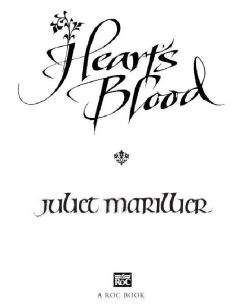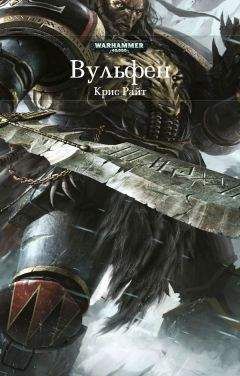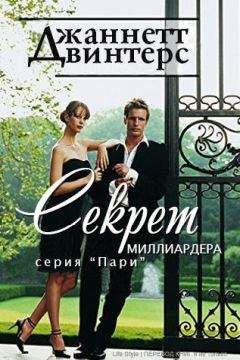Cybele's Secret - Juliet Marillier - Cybeles Secret
“Wanted? Wasn’t he here to apologize to you?”
The tea vendor’s boy had come up with a laden tray. I helped myself to a glass and sipped gratefully.
“He asked for your hand in marriage.” Father sounded mildly amused as he delivered this thunderbolt.
“He…what?”
“Made a formal proposal of marriage, accompanied by all the information a father expects at such a time. It sounds as if the fellow is quite wealthy, Paula. And the family is well thought of by the rulers of that country, if Aguiar is to be believed. All this, of course, weighed against his dubious personal reputation. He spoke highly of you. You’ve clearly made an impression.”
I was almost speechless. “Why didn’t he say anything to me?” Never in my wildest flight of imagination had I foreseen this. I struggled to make sense of how I felt. Confused and unsettled, certainly. But pleased as well. After Stoyan’s rebuff, this made me feel just a little better about myself. Duarte did have a lot to offer, far more than my father could learn from a quick interview. “What did you tell him?” I asked.
“I said no, of course.” Father was calm, his gaze fixed on me.
“You said no? Just like that? Without even asking me?” I was outraged. Perhaps this was what run-of-the-mill fathers did, fathers of the kind who did not view their daughters as intelligent, independent human beings with opinions of their own. But not my father.
“You needed your sleep. Don’t be upset, Paula. A man who gives up after a single refusal is not worth considering as a son-in-law, in my view. I expect he’ll be back. Are you saying you actually want to marry the fellow?”
I felt a blush rising to my cheeks. “I’m not saying that at all, Father. Only that I would like to be consulted before such a decision is made. It is the rest of my life, after all.”
“Portugal is a long way off.” He looked suddenly desolate. I got up and went to put my arms around him.
“He might not come back anyway,” I said. “Don’t worry, Father. Now where are these accounts?”
Stoyan returned briefly, procured supper for the three of us, then asked my father if he might absent himself until tomorrow morning. He was still trying to avoid me, I knew it. There were questions in my eyes, perhaps—questions whose answers would be too painful to speak aloud.
As we ate in awkward silence, it came to me that I did not need to look at Stoyan to make an inventory of all the things that pleased me about him: his imposing height and broad shoulders, his muscular arms, the cascade of thick dark hair, the amber eyes that could be as gentle as a dove’s or as fierce as a wolf’s. The pale intensity of his complexion, marked by the jagged scar whose trajectory I would like to trace with my fingers. The strong bones of cheeks and jaw. Most of all, his rare wisdom, an inner stillness and understanding that went far beyond such surface cleverness as a capacity to read and write or a facility with numbers. There was so little time left. His silence troubled me, and so did the forbidding look on his face. I knew how strong-minded he was. The shield he had set up around himself was almost perfect. But tonight, for the first time since the voyage home, I thought I could see through that barrier to the pain it concealed. In Stoyan’s guarded eyes, I glimpsed a perfect reflection of what was in my own heart, and a tiny flame of hope flared inside me. Perhaps, after all, it was not too late. I must talk to him again, and this time I must get it right. When he came back tomorrow morning, I would do it.
Father gave Stoyan leave of absence, and we spent the evening quietly packing our personal items. There was only one load of goods to go to the ship now. We would be sailing the day after tomorrow. We talked a little more about Cybele’s Gift and what its true importance was. So many folk had wanted to track it down for so many different reasons. Irene and Murat had been prepared to kill for it. So had the Sheikh-ul-Islam, if it was true that the Mufti had ordered Salem’s death for, as he saw it, encouraging pagan practices within the city.
“The leaders of the Other Kingdom back home always intend good for human folk provided we can learn our lessons,” I told Father. “I’m sure their counterparts here, like the crone we met in the caves, are exactly the same, though their methods are more brutal. They wanted Cybele’s Gift to go back to Mustafa’s village. It’s more than just another primitive artifact; it’s a recognition of old, good ways. It’s the same lesson they tried to teach Cezar when he intended to chop down our forest rather than harbor Ileana’s people. Respect for…for Mother Earth, I suppose you could say.”
“I had heard,” Father said as he tightened a cord around a box and knotted it, “that Cybele’s rites were somewhat violent and bloody. That does not seem entirely apt for this message you set out.”
“Maybe they once were. What we saw was stylized: people in masks, men in women’s clothing, and so on. No bloodletting, just dancing, games, and music. Irene set herself up as a priestess of Cybele. But I think she got things wrong when she restricted her rites to women only, with Murat, as a eunuch, the only exception. Up in that mountain village, men and women mingled freely and seemed equal, though it was the old women who led the ritual.”
“And what of the inscription?” Father asked. “Did you discover its meaning?”
“It’s not a key to instant good fortune. That legend must have grown up around Cybele’s Gift over the years it couldn’t be found. The inscription is just simple advice on how to live our lives well. Cybele tells her followers that if they live in harmony with the earth, respecting what she provides, she will continue to nurture them. And she tells them to celebrate the lives they have. That’s a message for everyone, men and women both. The villagers seemed to think the world was going through a time when that wisdom might not be understood. They said Cybele’s Gift, and her words, needed to be hidden away for a while, kept safe.”
“With folk like Irene of Volos in the world, as well as the Sheikh-ul-Islam, no doubt that is wise,” Father said. “Christian leaders in Istanbul would be equally determined to stamp out any evidence of idolatry, as they would see it. As for me, I am somewhat stunned by the whole sequence of events. I do not believe I will be trading in religious artifacts for some time. I’m certain you are not giving me the whole story, Paula. You think to spare a frail old man, perhaps.” There was a twinkle in his eye.
“You, frail?” I said. “You’re an exceptional parent, Father. I’ve always known that.” It was true. How many fathers would be so ready to accept what I had told him? How many would have allowed a daughter to come on the voyage in the first place, let alone forgiven so quickly the impetuous and crazy act that had seen her spirited away on a pirate ship?
Morning came, and with it not Stoyan but Duarte da Costa Aguiar, striding into the courtyard at an hour perhaps a little too early for a social visit but not too early for my father and me. We had been up since the morning call to prayer, getting the last of the goods ready for Stoyan to take down to the docks when he arrived. I was wearing my plainest gown and had my hair pinned tightly back under a scarf.
Father saw Duarte coming and said to me, “Choose wisely, Paula. You’re a fine girl, full of spirit and intelligence. I may not like this man very much, but I can see that in many ways he’s ideal for you. You and he have a great deal in common. I suggest you take him up to the gallery and leave me to get on with this.”
I wiped clammy hands on my skirt, suddenly overcome with nerves. I would have liked a chance to wash, to brush my hair, to put on a better outfit, perhaps the plum-colored silk and the lovely veil Duarte had given me.
“You look fine, Paula,” Father said, setting his hands on my shoulders and kissing me gently on the cheek. “Go on now.”
Well, Duarte had seen me grimy and sweaty with my clothing in rags, so perhaps it didn’t matter. Now he greeted me with a smile, exchanged courteous words with my father, then followed me up the steps to the gallery, where we seated ourselves at the little table. I wished I had brought something to occupy my hands. I clutched them together in my lap and cleared my throat.
“Father told me about yesterday,” I said awkwardly. “I was…surprised. Very surprised.”
Duarte had dressed for the occasion. His shirt was of pristine linen, his tunic and trousers of finest wool in the light blue-gray he seemed to favor. His boots were buffed to a shine. Around his neck he wore my red scarf. I considered the aristocratic features, the mischievous dark eyes, the glossy black hair caught neatly back with a ribbon. The upright, athletic body. I tried to imagine being his wife. “To be honest,” I added, “you’ve never struck me as the marrying kind of man.”
“Up until recently, I was not,” he said, and I heard the slight tremor in his voice. He was nervous, too. “Our recent journey, the pleasure we took in each other’s company, the way the whole ship came to life while we had you on board…these things have changed my mind on the issue. The fulfillment of my debt of honor has caused me to reassess the future. Master Teodor will have told you, no doubt, that I gave him an inventory of my personal resources and those of my family. I want you to know that I did so not because I believe the final decision will be made on the basis of my wealth but so that your father will be reassured that I can offer you a secure future.”
“I see,” I said, wondering if I should tell him there was no need to set such details out for me.
“Paula, you know what kind of man I am. My past conduct has not always been entirely ethical. My life is one of constant movement and change. The success of this mission will not alter that. I love the sea. I love the adventure of it, the opportunities it offers, the surprises and challenges.” He had risen to his feet now and was standing by the railing with his back to me, tapping his fingers against his leg.
“Duarte,” I said, “why don’t you sit down? We are friends, aren’t we?”
He seated himself on the very edge of a chair.
“Good,” I said. “I’ve got a question for you. That life you just described, the life of a seafarer—it doesn’t sound like a life that has much room in it for wives. I could never be the sort of woman who tended the hearth and kept everything in place for a husband who dropped in once or twice a year when he felt like it. That seems to me quite pointless; one might as well stay single and live one’s own life.”
Duarte smiled. I liked that smile; it reminded me of our conversations on the Esperança, the way we sparked each other off with lively banter, each seeking to outwit the other in our debates on every topic under the sun. I had enjoyed those times. Father was right; Duarte was my intellectual equal, a partner such as I might have great difficulty in finding within my limited circle back home in Transylvania. He was clever, witty, possessed of a quirky sense of humor. He was also courageous, strong, and resourceful, not to speak of his physical charms and his considerable wealth. Not so long ago, I would have considered him completely unsuitable to be my husband or indeed anyone else’s. But he had proven himself to be a different man from the unscrupulous pirate I had once believed him.
“That wasn’t what I had in mind,” Duarte said quietly. “Nobody could imagine that a woman like you would be satisfied with that role, the stay-at-home wife waiting patiently while her husband goes off on adventures at a whim. It was for that reason I decided, long ago, that I would not marry. Such a partnership would be too uneven, and the kind of woman who wanted it would not be the kind of woman to interest me.”
I could not work out where he was heading. Down in the courtyard, near the area where Father was working, I glimpsed a tall, dark-haired figure in a dolman, with knives stuck in his sash. Suddenly every nerve in my body was on edge.
“Of course, when I made that decision, I had not met you, Paula,” Duarte said. “And I confess, during our earlier encounters, I had very mixed feelings about you. But I have entirely reassessed those feelings. I found it difficult to say farewell to you down at the docks. Then it came to me—I thought, perhaps I need not do this. Why should we not go forward together, side by side, companions in an even greater adventure? I believe we would continue to surprise and delight each other and add spice and sweetness to each other’s life.”
Down in the courtyard, Stoyan was moving in and out of the storage room, talking to Father. He looked as if he hadn’t slept a wink. My heart did a strange kind of flip-flop, as if to remind me to be honest with myself.
“You know I admire you, Duarte,” I managed. “I have greatly enjoyed your company. The voyage, your determination to fulfill your debt of honor, the way you conducted yourself…I can’t fail to hold you in high regard after that.” I drew a deep breath, struggling to keep calm. It wouldn’t be fair to cut him off short; he was a friend, and I owed him respect. “You still haven’t really answered my question. If I accepted you, where would I fit into the future you have said you want, the future of voyages and adventures and discoveries?”
“I was hoping,” he said, coming closer and dropping to one knee beside me, “that you would share it with me, Paula. Be my partner on the Esperança, travel with me, share my adventures. We would make an invincible team. Together, we could achieve anything. And think what enjoyment we would have doing so. Paula, I don’t think I am wrong in interpreting your willingness to spend time in my company as perhaps indicating you feel more than friendship toward me. I know your father intends to sail for home tomorrow. We don’t have much time. Can you give me an answer?”
The han seemed suddenly hushed. My answer trembled on my lips, reluctant to become sound, for I valued Duarte’s friendship and I respected the honesty with which he had presented his proposal—while it had scarcely been romantic in nature, he had said it in plain words, not masked by empty compliments. I rose to my feet, moving to stand at the railing. “Please don’t kneel like that,” I said, feeling tears somewhere close. “You’re making me feel awkward. Come over here, take my hand.”
He knew, then, that I was going to say no. I saw it on his face as he moved closer and put his hands around mine.
“I can’t,” I said bluntly. “I have a high regard for you, Duarte, and if the circumstances were different, I would accept your offer gladly. But I can’t.”
“Just like that you refuse me? Will you not at least take a little time to consider this? We could…” His words trailed off as he met my gaze. “You mean it,” he said simply. “You won’t change your mind.”
“I’m sorry, Duarte.” Cheeks flaming, I tried not to glance down to the courtyard. “You’re a fine man, and it hurts me to cause you pain. But I know I could never love you the way I should.”
He shrugged, lifting his brows and giving me that sardonic little smile. It made me want to cry.
“Ah, well,” he said, “I can see it’s back to a life of piracy for me. So much for redemption through the love of a good woman. It’s time I was off. But first…” And before I could so much as draw breath, he swept me into his arms and kissed me full on the lips, not the cheeky, joking kind of kiss he had given me as I left the Esperança but a proper kiss of a sort I had never before experienced. It was lovely: passionate, tender, a little frightening. It was a kiss that said, This is what you’re giving up. This is what we might have had. He did not release me for a while. When at last he did so, it was to turn abruptly on his heel and head off down the steps without another word.




